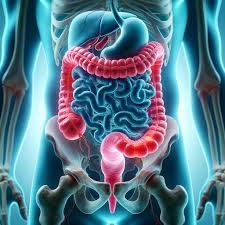Gut Health Matters: The Impact of Probiotics on Your Digestive System

In recent years, gut health has gained significant attention, and for a good reason. The state of your digestive system impacts more than just digestion—it affects your immunity, mental health, and overall well-being. At the forefront of this discussion are probiotics, often referred to as “good bacteria,” which play a vital role in maintaining a balanced gut microbiome.
This article delves into the importance of gut health, the role of probiotics, and how they can positively impact your digestive system and beyond.
Understanding Gut Health
Your gut is home to trillions of microorganisms, including bacteria, viruses, fungi, and other microbes, collectively known as the gut microbiome. This diverse ecosystem is critical for various bodily functions, such as digesting food, absorbing nutrients, and regulating the immune system.
A healthy gut is characterized by a balanced microbiome where beneficial bacteria outnumber harmful ones. When this balance is disrupted—due to poor diet, stress, antibiotics, or illness—it can lead to digestive issues, weakened immunity, and even chronic diseases.
What Are Probiotics?
Probiotics are live microorganisms that, when consumed in adequate amounts, provide health benefits, particularly for the gut. They are commonly found in fermented foods and dietary supplements.
The most well-known types of probiotics are:
- Lactobacillus: Found in yogurt and fermented foods, these bacteria help break down lactose and support a healthy gut lining.
- Bifidobacterium: Present in some dairy products, these bacteria aid in digestion and help combat harmful bacteria.
- Saccharomyces boulardii: A type of yeast that helps with digestive disorders.
Probiotics work by colonizing the gut, competing with harmful bacteria, and producing substances that support gut health.
How Probiotics Impact Your Digestive System
1. Restoring Gut Balance
Probiotics replenish the good bacteria in your gut, particularly after disruptions caused by antibiotics or illness. This balance is essential for optimal digestion and nutrient absorption.
2. Improving Digestion
Probiotics assist in breaking down complex carbohydrates, proteins, and fats, making it easier for your body to absorb essential nutrients. They also help regulate bowel movements and reduce symptoms of conditions like constipation and diarrhea.
3. Supporting Gut Lining Integrity
The gut lining acts as a barrier that prevents harmful substances from entering the bloodstream. Probiotics strengthen this barrier, reducing the risk of “leaky gut syndrome,” which has been linked to inflammation and chronic diseases.
4. Reducing Digestive Disorders
Probiotics are effective in managing conditions like:
- Irritable Bowel Syndrome (IBS): Studies show that certain probiotic strains can alleviate symptoms like bloating, gas, and abdominal pain.
- Inflammatory Bowel Diseases (IBD): Probiotics may help reduce inflammation and promote remission in conditions like Crohn’s disease and ulcerative colitis.
- Lactose Intolerance: Probiotics, particularly Lactobacillus, help digest lactose, reducing discomfort in lactose-intolerant individuals.
Probiotics Beyond Digestion
While probiotics are best known for their role in gut health, their benefits extend to other areas of the body:
1. Boosting Immunity
Approximately 70% of your immune system resides in the gut. Probiotics enhance immune function by stimulating the production of antibodies and white blood cells that fight infections.
2. Supporting Mental Health
The gut and brain are connected through the gut-brain axis. Research shows that probiotics can influence mood and cognitive function by producing neurotransmitters like serotonin. They may even help alleviate symptoms of anxiety and depression.
3. Improving Skin Health
An imbalanced gut microbiome can lead to skin conditions like acne, eczema, and rosacea. Probiotics help reduce inflammation and promote a healthy complexion by restoring balance to the microbiome.
4. Aiding Weight Management
Some studies suggest that probiotics influence body weight by altering the gut microbiota composition and reducing fat absorption. They may also regulate appetite and energy balance.
Sources of Probiotics
Probiotics are available in various forms, including foods and supplements. Here are some common sources:
1. Fermented Foods
- Yogurt: Look for live and active cultures on the label.
- Kefir: A fermented milk drink rich in diverse probiotic strains.
- Sauerkraut: Fermented cabbage that supports gut health.
- Kimchi: A Korean fermented vegetable dish packed with probiotics.
- Tempeh and Miso: Fermented soy products that are also protein-rich.
2. Probiotic Supplements
Supplements are a convenient way to ensure you’re getting enough probiotics, especially if your diet lacks fermented foods. When choosing a supplement, look for:
- A variety of strains (e.g., Lactobacillus, Bifidobacterium).
- A guaranteed potency, measured in colony-forming units (CFUs).
- A product with proper storage instructions (some require refrigeration).
Probiotic Myths and Facts
Despite their popularity, there are several misconceptions about probiotics:
Myth 1: All Probiotics Are the Same
Fact: Different strains have different benefits. For example, Lactobacillus rhamnosus may reduce diarrhea, while Bifidobacterium bifidum supports immune health.
Myth 2: Probiotics Work Instantly
Fact: Probiotics take time to colonize the gut and show noticeable effects. Consistency is key.
Myth 3: Probiotics Are Only for Digestive Issues
Fact: While probiotics are beneficial for digestion, they also support immunity, mental health, and more.
Who Should Take Probiotics?
Probiotics can benefit almost everyone, but they are particularly helpful for:
- Individuals recovering from antibiotic use.
- Those with digestive disorders like IBS or IBD.
- People seeking immune system support.
- Anyone looking to improve overall gut health.
However, individuals with weakened immune systems or chronic health conditions should consult a healthcare professional before starting probiotics.
Tips for Maintaining Gut Health
While probiotics are a powerful tool for gut health, a holistic approach is essential for long-term benefits:
- Eat a Fiber-Rich Diet: Prebiotics, found in foods like bananas, onions, and garlic, feed beneficial bacteria.
- Limit Processed Foods: These can disrupt the gut microbiome and promote harmful bacteria.
- Stay Hydrated: Water supports digestion and nutrient absorption.
- Manage Stress: Chronic stress negatively affects the gut microbiome. Practice mindfulness or meditation.
- Exercise Regularly: Physical activity promotes a diverse and healthy gut microbiome.
Final Thoughts
Probiotics play a crucial role in maintaining a healthy gut and promoting overall well-being. By incorporating probiotic-rich foods or supplements into your routine, you can enhance digestion, boost immunity, and even improve mental health.
However, probiotics are not a one-size-fits-all solution. Individual needs vary, and it’s essential to choose the right strains and dosages for your specific health goals.
Remember, gut health is a cornerstone of overall health. By prioritizing your digestive system and making informed choices, you can enjoy the far-reaching benefits of a balanced gut microbiome for years to come.



